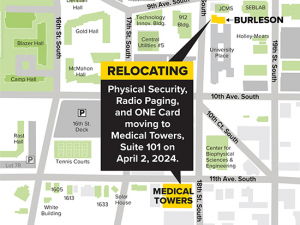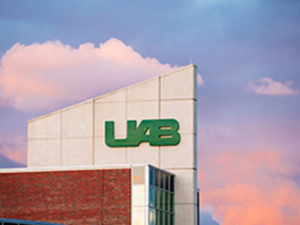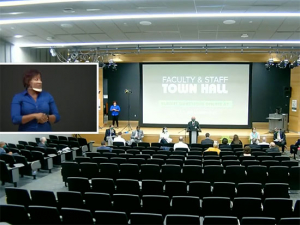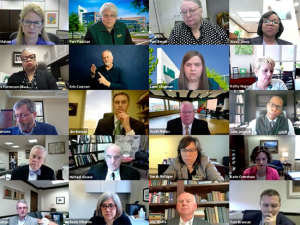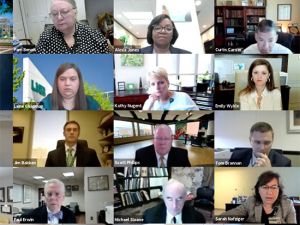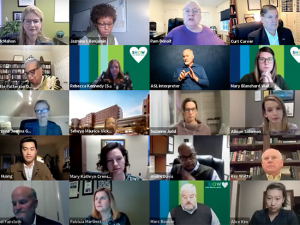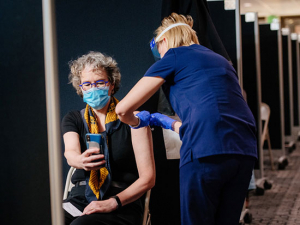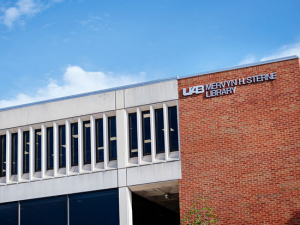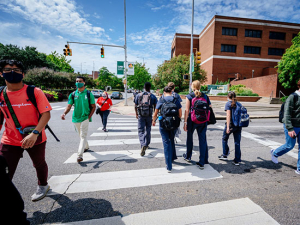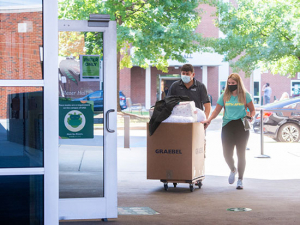 Employees can expect improved access to and affordability of child care now that the university and the UAB Health System have accepted the recommendations of committees established to explore options for expanding facilities and services.
Employees can expect improved access to and affordability of child care now that the university and the UAB Health System have accepted the recommendations of committees established to explore options for expanding facilities and services.
In the short term, UAB will contract with highly accredited child-care centers to make spaces available for UAB employees at a discount while it moves forward with plans to build a new, additional facility on campus, said Christopher Clifford, associate vice president of Business and Auxiliary Services.
Clifford chaired the university group created in 2016 to review the operations and capacity of the existing UAB Child Development Center. It conducted an onsite review and examined 2,000 responses to a 2016 campus survey on child-care needs. During the same period, UAB Health System employed a consultant, Bright Horizons, to assess the needs of its employees and the city landscape for child-care opportunities, said Lauren Leach, who is a director in Strategic Planning and Business Development for UABHS.
|
"Expanding child-care options has been high on our wish list for many years, and everyone who has pushed and supported this is genuinely thrilled that we can help provide new resources." |
Leach said the need for child care was a persistent concern consistently expressed by its employees in surveys and focus groups — especially as a component of work-life balance. She said providing new options is a high priority for UABHS and the academic campus, and the timing is right for the two to work together to accomplish that.
The final recommendations reflected the joint findings of both groups.
Chief Human Resource Officer Alesia Jones said this adds to UAB’s expanding list of family-friendly benefits such as parental leave, expanded sick leave and an increase to the minimum wage.
“Expanding child-care options has been high on our wish list for many years, and everyone who has pushed and supported this is genuinely thrilled that we can help provide new resources for our colleagues with infants and preschool-age children,” Jones said.
“Let me also say our staff at the UAB CDC are loyal, long-term, high-quality educators and caregivers, and we value their role here. They have made it easier for many employees to pursue their work at UAB, and their success is one of the strongest arguments for expanding this benefit.”
Recommendations
UAB’s Child Development Center, in operation since 1995, is among the 5 percent of child-care centers to be accredited by the National Association for the Education of Young Children (NAEYC), considered the gold standard for early-childhood education. It is a well-run and highly regarded facility, but its 90-child capacity generates a perpetual wait list of about 250, Clifford said.
The joint recommendations offer short- and long-term remedies for the future:
-
Preserve the high-quality child-care facility and maintain affordability.
-
Increase access for lower-income employees and students by reserving 20 percent of available slots for their use at a discounted rate.
-
Expand access through reserved spots in high-quality child-care facilities in the community.
-
Triple on-campus capacity by contracting with an external operator to build and operate a nationally accredited facility on UAB property.
Accessing off-site care
UAB has entered an agreement with Kindercare, which operates multiple NAEYC-accredited facilities in metro Birmingham, to provide a 10 percent discount to UAB employees who enroll children there. Similar agreements are being forged with other providers that should secure up to an additional 50 spots, Clifford said. The university and the health system is underwriting those agreements at the cost of up to $50,000 annually. He expects enrollment may begin by the end of the spring semester.
Increasing on-site care and more
UAB is planning to issue a request for proposals from child-care providers who would contract to build and operate a new, 200-child center on UAB’s campus to open as early as 2019. “This investment of UAB land signals that UAB recognizes the importance of making high-quality child care available for its employees,” Clifford said.
UAB will maintain an advisory and oversight role for the new facility, which also should provide highly desirable academic opportunities for UAB students in the School of Education early-childhood development programs. Those opportunities have been limited in the past by the size constraints of the existing facility, Clifford said.
The annual subsidy the university provides for the Child Development Center is approximately $250,000 and that is expected to continue, commensurate with the availability of the institution’s discretionary funding, Clifford said.




